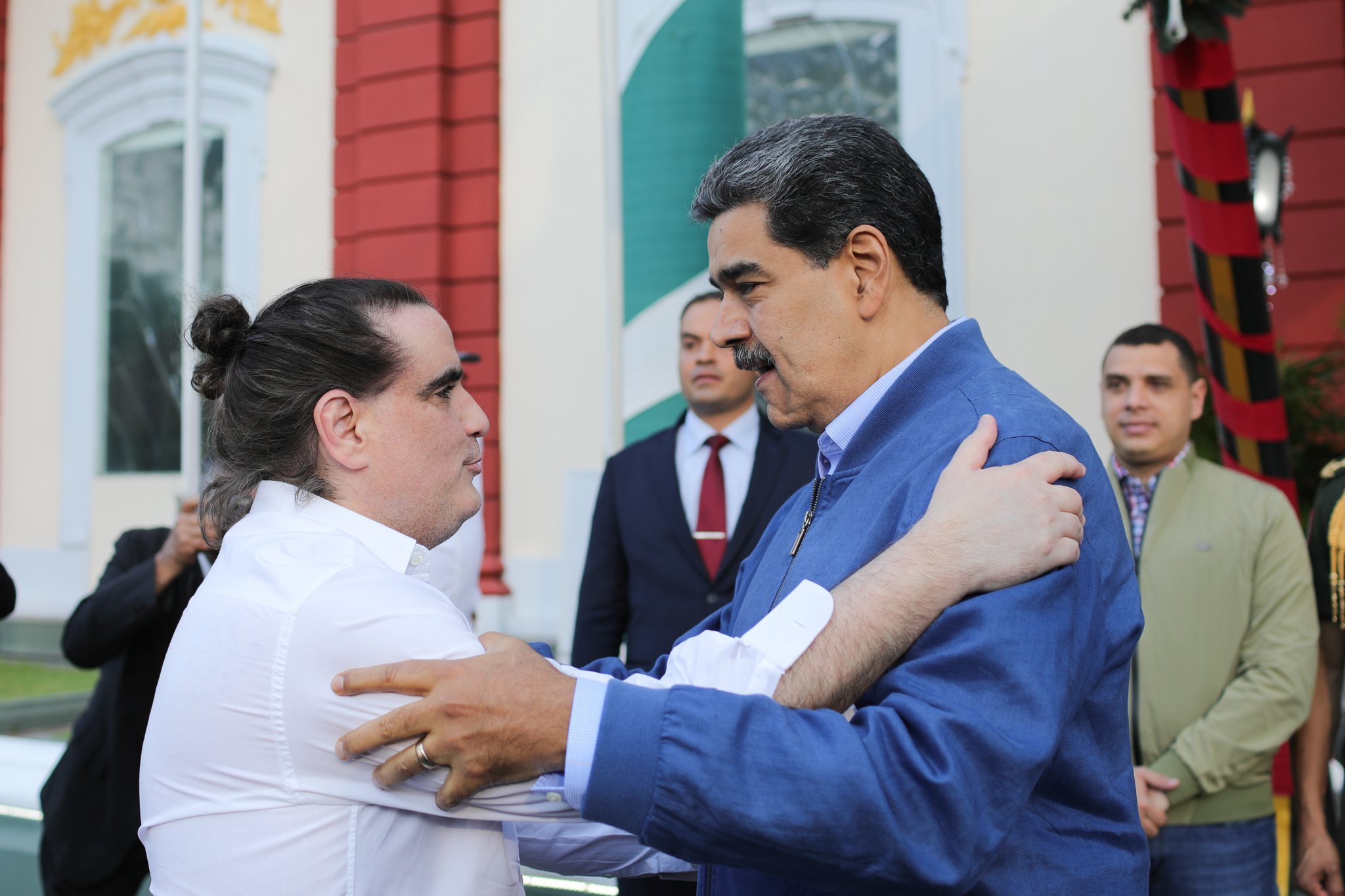Qatar, a major diplomatic broker, has played yet another mediation role between the US and Venezuela, enabling the release of 11 people, including a close ally of President Maduro.
Qatar’s mediation has resulted in a prisoner exchange deal of 11 prisoners between the United States and Venezuela, Doha’s Minister of State for Foreign Affairs, Mohammed Al-Khulaifi told the Qatari news agency (QNA) on Thursday.
In his remarks to QNA, Al-Khulaifi said that the deal entailed the release of 11 people, including 10 American prisoners in exchange for one Venezuelan prisoner, without naming those released under the deal.
The swap marked the largest release of US prisoners in Venezuela’s history, according to the Associated Press.
“His Excellency expressed the State of Qatar’s thanks to the United States of America and the Bolivarian Republic of Venezuela for their cooperation in the success of the prisoner exchange process and their response to Qatari mediation efforts,” QNA reported, citing Al-Khulaifi.
The Qatari official added that the prisoner exchange “is part of a broader mediation to address the outstanding issues between the two countries.”
Al-Khualifi had also met Venezuela’s President Nicolas Maduro on December 16 in Caracas.
The Venezuelan government announced on Wednesday that the US had released Alex Saab, a Colombian businessman and a close ally of Venezuela’s president. The Venezuelan president had received Saab and his family upon their arrival after he spent three years in prison in Miami.
American prosecutors had accused Saab of funnelling some $350 million from Venezuela through the US under a major bribery scandal. Maduro maintained that Saab was wrongfully detained.
Maduro has also thanked Qatar’s Amir Sheikh Tamim bin Hamad Al Thani and the Qatari government for being “a brilliant facilitator of exquisite diplomacy for rapprochement.”
US President Joe Biden separately announced in a White House statement that the Americans have been released, including six who have been “wrongfully detained.” He added that those released included “a fugitive named Leonard Francis” who fled the US after committing “a brazen bribery and corruption case.”
“He will face justice for crimes he committed against the US Government and the American people,” Biden said.
Quiet Qatari mediation
Reports emerged in June over Qatar, a major diplomatic broker, playing yet another mediation role between the US and Venezuela.
The Gulf state had previously secured a milestone prisoner exchange agreement between the US and Iran on September 18, which saw the release of five Iranians and five Americans as well as the unfreezing of $6 billion in Iranian assets overseas.
In June, Spain’s El Pais first broke the news about a meeting in Qatar that allegedly took place between the president of the Venezuelan National Assembly, Jorge Rodríguez and Juan Gonzalez, an adviser to President Biden.
The sources claimed that both Rodriguez and Gonzalez had “met to establish a direct channel of communication” between the adversaries.
Then on October 16, The Miami Herald reported that the American and Venezuelan sides have held “a series of subsequent meetings in recent months” following the one in the Gulf state.
According to the report, the US team stressed that international monitors must oversee the elections, which would lift a ban that prevented opposition figures from running for elections, namely former national assembly member Maria Corina Machado.
The Miami Herald added that quiet negotiations took place in Doha between Washington and Caracas resulting in a “tentative agreement” for free and fair elections in Venezuela.
The latest prisoner exchange between the US and Venezuela comes amid a gradual ease of tensions between the two countries, which soared under the former Donald Trump administration.
Trump had imposed crippling sanctions on the South American country during his time in office, between his election in 2016 and 2021, in a bid to exert maximum pressure on President Maduro.
In 2019, Maduro severed diplomatic ties with the US after it recognised opposition leader Juan Guaido as the interim president amid rising tensions between the two countries.
Trump’s perceived attempt to overthrow Maduro was widely seen by analysts as another U.S. attempt to meddle in the affairs of Venezuela and the wider Latin American region.
Notably, relations between the US and Venezuela have appeared to warm in recent months under the Biden administration.
In January, Maduro said he was open to normalising ties with the US following a visit by officials from the Biden administration.
On October 18, the Biden administration eased sanctions on Venezuela’s oil sector following a deal between the Venezuelan government and opposition parties for the 2024 elections.
In his statement on the latest prisoner exchange, President Biden stressed that Washington is still “ensuring that the Venezuelan regime meets its commitments.”
“They have announced an electoral roadmap – agreed to by opposition parties – for competitive Presidential elections in 2024. This is a positive and important step forward. As we welcome home our fellow citizens, I must also remind all Americans of the long-standing warning against travelling to Venezuela. Americans should not travel there,” Biden added.







